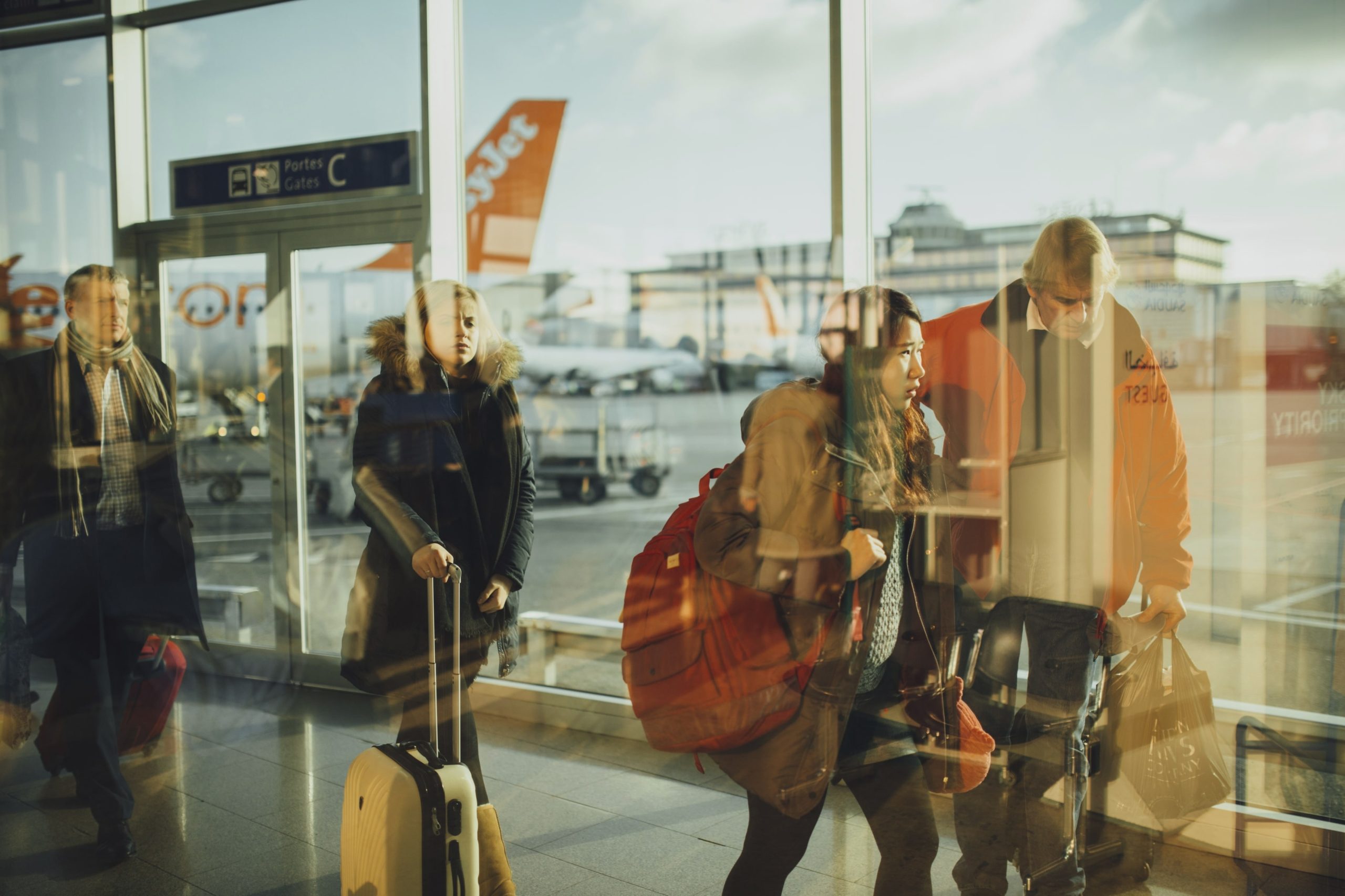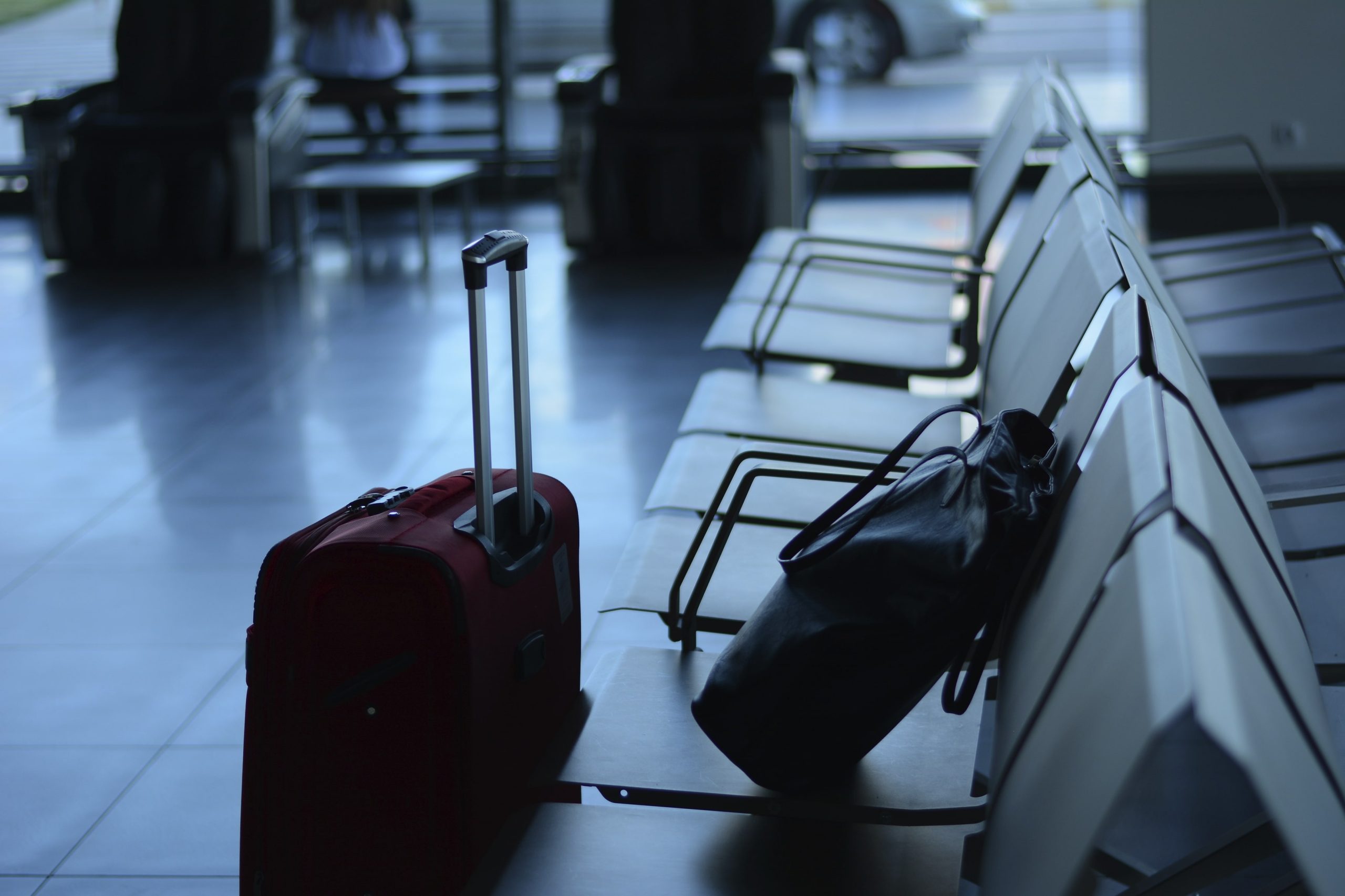BLOG
Stranded staff | What to do when employees can’t work due to flight cancellations
Written by Angela Carter on 7 June 2022

Owing to a combination of staffing shortages, air traffic control restrictions and a resurgence in demand, thousands of Brits are falling victim to flight cancellation chaos.
305 flights departing the UK were grounded over the Jubilee weekend and a further 189 international flights into the UK were also cancelled, with the majority from the Netherlands, Spain and the Canary Islands, France and Germany.
Unsurprisingly, the situation is proving incredibly frustrating for holidaymakers. Some have been left crushed by last-minute cancellations, while others have found themselves “abandoned” at airports across Europe.
At the same time, the disruption is also having a knock-on effect on employers. Between requests to reschedule annual leave and employees who are stuck abroad with no means of working, businesses will be feeling the strain.
If you’ve never encountered this sort of situation before, you may be unfamiliar with your company’s policy in regard to these scenarios and unsure what your options are if staff aren’t able to show up for work.
Here’s what you need to know from an employment law perspective.
Do I need to pay staff if they are stuck abroad?
Legally speaking, if employees are unable to work, they won’t be entitled to be paid. Some contracts may state that the employee will be paid if they are unable to attend work due to circumstances outside of their control – but this would be rare.
Employers therefore have a few options. First, if both parties agree, and assuming the employee hasn’t exhausted their holiday entitlement for the year, time off due to cancelled flights could be taken as annual leave. While not ideal, this would at least mean that the employee is paid for the time they are delayed.
Fortunately, as leave years typically start in January or April, most employees should have holiday left to take. If they don’t, or they don’t want to dip into their holiday allowance, then the second option would be to treat the absence as unpaid leave.
It’s important to note that employees have no legal right to unpaid leave, so while they can request it to avoid taking holiday, this will be additional time off which you might not want to agree to or support given it is essentially unproductive time.
Don’t forget, employers can compel employees to take holidays providing that they give them double the amount of notice as the amount of leave they want the employee to take – four days’ notice to take two days’ leave, for instance. This is unlikely to be much use if the employee’s flight is delayed by just a couple of days, but it’s worth bearing in mind.
The third possible solution is for the employee to work remotely from abroad while they wait for a flight home. Of course, this would rely on them having the equipment to work productively, and this would be for the employer to determine.
Beyond these options, you might also want to check your leave policy to see whether there are any other provisions for taking time off, such as time off in lieu.
Do you need support?
Speak to us for an honest, no obligation chat on:
0345 226 8393 Lines are open 9am – 5pm
Can we ask employees to make alternative travel arrangements?
Your first reaction might be to find other ways for the employee to get home, particularly if they are facing significant delays or there are genuinely pressing business reasons why you need them back in work sharpish.
The question is, to what extent would it be reasonable for an employer to expect staff to make alternative arrangements to get back to work sooner? Unfortunately, there’s no definitive legal answer, and what’s reasonable would be fact-specific, though it would be worth at least mulling over the potential options with the employee to see if a solution can be found.
In some cases, there could be a relatively straightforward alternative – for example, the business could offer to fly the employee back into a different airport, or the employee could travel back by Eurostar and attempt to claim additional costs back from their insurer.

What if they are travelling for work – should we take a different approach?
While most of those stranded abroad will have been part of the holiday rush, some will have been travelling for work. Should companies adopt a different position if the employee is attempting to return from a work trip as opposed to a family vacation?
There’s certainly an argument that, if stranded on business travel, the employee should be paid for this period of absence. After all, if it wasn’t for flights being cancelled outside of their control while they were away on business, they would otherwise be ready, willing and able to work. It seems unfair to penalise employees in this scenario.
Admittedly, employees who become stranded abroad while on a business trip might not pose as much of a problem anyway given that they are more likely to be equipped to work effectively remotely, though this won’t be true in every case.
How can we prevent problems? Can we reject requests until the situation improves?
The media is reporting that the problem is unlikely to be fixed by the summer, particularly given the surge in traffic. As well as impacting consumer confidence, this will undoubtedly cause further anxiety for businesses, who may be worried about losing staff for longer than they bargained for.
Given the potential for problems, you might be tempted to reject any incoming holiday requests. However, keep in mind that while employers have the right to refuse requests, they must ensure they don’t effectively deprive the employee of the opportunity to take their statutory holiday entitlement.
Legalities aside, there are other things to consider first, not least the employee relations impact on a workforce who have been unable to travel abroad for a long period of time. It’s likely that people may become disengaged or even look elsewhere if their request for time off is denied.
Additionally, if employees are aware that their request is likely to be rejected, they may simply choose to call in sick instead. While this could be a disciplinary issue, you would need evidence to support your suspicion that they had travelled abroad, and all of this could prove difficult and time-consuming to deal with.
With all of this in mind, employers’ first line of defence against future airline-related absences will be to update their policies and procedures. You may already have wording within your handbook that touches on adverse weather and travel disruption, but it might be a good idea to strengthen and refine this to specifically cover airline disruptions.
Whether to change your policy wording might depend on how likely it is that the problem will persist and how common these scenarios may be in the months ahead. A lot will rest on the actual root cause of flight cancellation chaos, which is currently contested. If it’s a staffing issue caused by the pandemic, it may resolve soon; if it’s an issue caused by Brexit, or factors such as fuel prices and other costs, it’s anyone’s guess as to how long absences could continue.
For now, Mike Clancy, general secretary of Prospect, a union representing airport staff, has told the BBC “it would be difficult to give anybody the confidence at the present minute, that we are going to be okay by the school holidays in July”.

Finally, what about employees whose holiday is cancelled? Are we obligated to let them rearrange?
In addition to employees stuck abroad, you may have staff who don’t even make it out of the departure lounge. These individuals may want to cancel their annual leave and take it at a different time.
Whilst employees can request to cancel annual leave that has already been approved, employers are not legally obliged to agree to this, nor are they obligated to allow employees to re-book the holiday for a later date. In the latter case, usual rules would apply, so the employee’s request would be subject to factors such as work demands and how many other team members are off on that date.
If the employee goes ahead and re-books their holiday without having their request for time off approved and jets off regardless, this would be treated as unauthorised absence, which may be a disciplinary matter.
All of that said, employers must remain mindful of the employee relations impact. Given that these issues are beyond the employee’s control, and the difficulties retaining and replacing staff right now, it may be in your favour to be as accommodating as you can, whilst balancing business needs.
Related Content

BLOG
Holiday Pay Calculations for Part-Year Workers Could Be About to Change Again - Here's Why

BLOG
Work from Wherever? | Things to Consider Before Allowing Employees to Work From Abroad
Absence management made easier
From unauthorised absences to productivity lulls, summer can throw lots of HR hurdles at employers. Thankfully, WorkNest assigns named Employment Law and HR specialists to help you manage all manner of employee obstacles efficiently and compliantly, so you can keep your team together and operating at its best.
In addition to unlimited expert advice, your dedicated advisers will draft any policies you require to ensure your business is armed and protected when workforce issues arise. And if absent employees are becoming a big problem, our market-leading HR software, PeopleNest, will help you to reduce absence levels and ensure correct processes are followed through entitlement rules, holiday planners and automated absence triggers.
For more on what’s included in our fixed-fee service, call 0345 226 8393 or request your free consultation using the button below.










